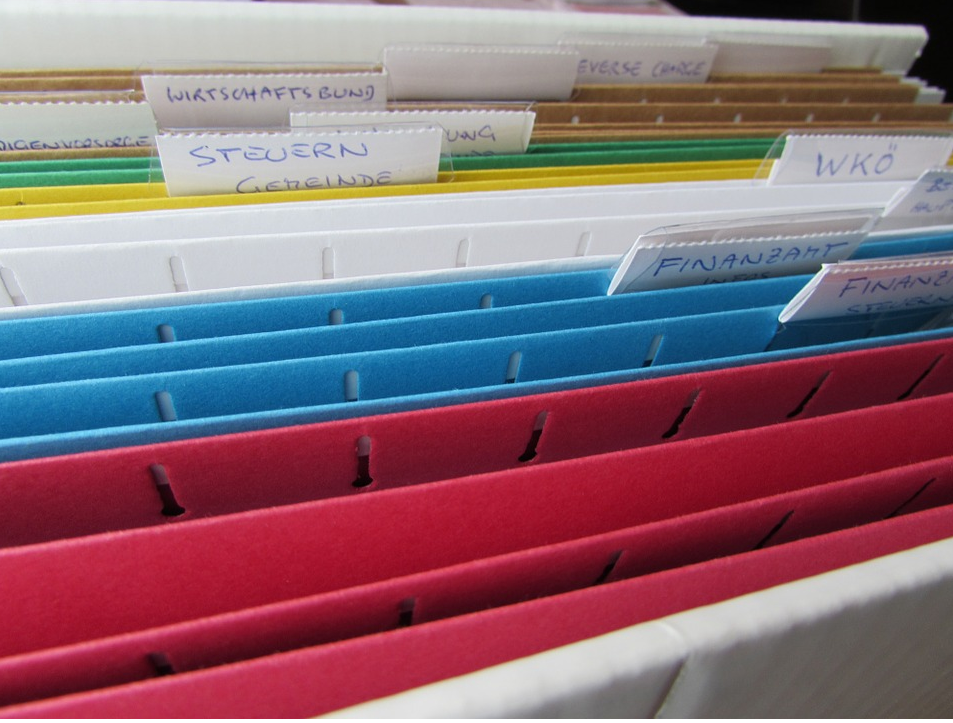If you are reading this piece, there are high chances that you are one of the millions who will be filing their taxes by July 15, or you are just catching up in an ordinary tax year. For most people, organizing taxes is a painful process. However, with skills, you can easily avoid hefty late fees and a trip to prison. In this article, we shall continue to explain how to easily organize your tax report and take the pressure off by organizing your tax reports for this year and in the future.
Get Your Paperwork Together
If you are the last-minute kind of a guy, you shouldn’t try this when filing your tax reports. The pressure then will be extra. As experts will always advise, have all your paperwork put together in a marked folder or box. The box should hold all your receipts, bank statements, and charitable donation forms. It will be best to have the folder divided into business expenses, office supplies, and philanthropic donations. This helps make everything easier to find when the need arises.
If you are looking to go a bit digital, you can have all the paperwork scanned and stored in a file on your PC. This move is perfect. However, it’s going to cost you some of your time on the front end. But, you can’t ignore the fact that it could make all your paperwork more comfortable to find and organize. According to tax experts, you should consider having all your tax statements from your employer, investments, bank, or any other platform that handles your cash by early February. Here are some of the forms you can expect to receive from these institutions;
- K-1
- W-2
- 1098
- 1098-E
- 1099
- 1099-B
- 1099-DIV
- 1099-G
- 1099-INT
- 1099-R
- 1099-SSA
- Invest in the Necessary Tools
For instance, there are free online tools that you can rely on to connect to every bit of your financial info. These tools give you access to your savings account balances, investment accounts, and credit cards. With the chance to access your entire financial status at once, it will be much easier to generate tax reports when the time to file taxes arrives. Also, special tools will guide you on how to prepare your tax files and file online.
It’s often recommended that you go for tools that will help you as a freelancer or entrepreneur stay organized. Utilizing the free 1099 template does precisely that. The tool is like Quickbooks self-employed but better. It scans all your bank statements picking out what your business expenses are. The tool then compiles all of your data onto a worksheet.
1. Get File Folders

Tax reports may need to be accessed regularly or once in a while. Whether you don’t need them often, keeping them organized helps save time when a need arises. One way to stay organized is by investing in file folders. It’s recommended that you go for colored hanging folders with plastic label tabs and plain manila folders.
These are readily available and easy to recognize. Say, for instance, you can choose to have all your client files in a yellow hanging folder, financial details in a blue one, and anything related to marketing in a red folder. With such an arrangement, you already know where you should be searching when you need a particular file.
2. Itemize Deductions and Expenses
There are times when the IRS may need to verify your deductions. Therefore, you should hold on to any of the tax-deductible expenses you generate all through the year. Some of the receipts and forms you should remember to keep include;
- Retirement plans contributions – you should have in mind that the government gives a tax break for contributing to a retirement account.
- Contributions to charity – contributing to charity lowers your tax burden.
- Healthcare expenses – you can deduct medical costs and insurance if they add up to more than 7.5% of your adjusted gross income.
- Mileage – you should consider deducting every mile you drive for business, health, or charity.
- Real estate taxes – you can deduct taxes paid on any property you own.
- Home mortgage interest
- Moving expenses
- Property loss due to theft or casualty
- Dependent children
- Investment losses from previous years.
3. Deal with the Missing Info Early Enough
While collecting tax forms, there are times when you are likely to encounter missing items. If you ever find yourself in this situation, you shouldn’t freak out. Consider working on collecting the missing pieces before the final date. Doing so not only saves you the last-minute rush but can also rescue you from hefty penalties that may be applied for lateness.
Filing tax reports is often met with many dramas, with most individuals not knowing how to go about it. In some instances, most people’s lack of knowledge sees them slapped with hefty penalties, which should not be the case. Staying organized is one way of ensuring that you skip all the dramas. By reading through this article, you will understand how you can easily manage your tax filing tax reports.

















Leave a comment